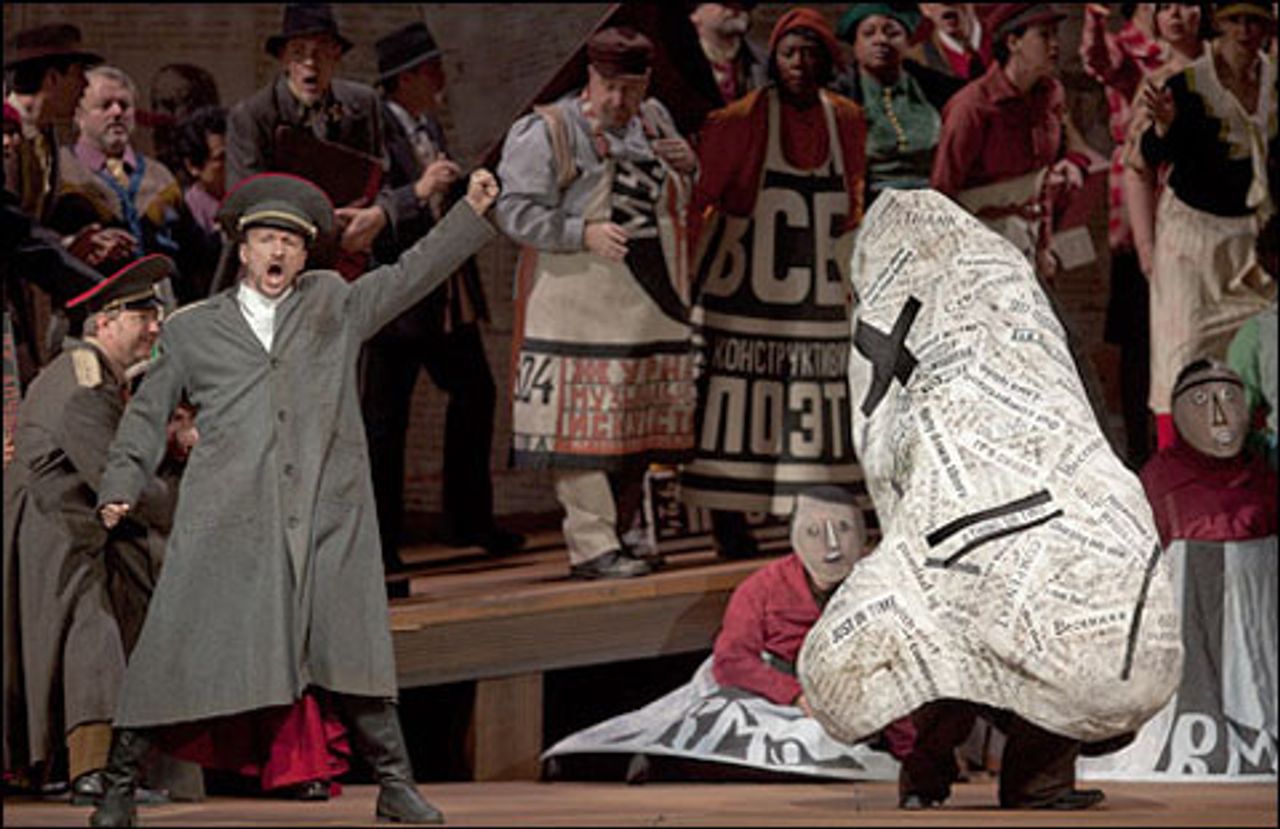Reading The Nose, I had a sudden episode of deja vu, where I read it as the same tired, and sleepy awakening as Metamorphosis as the short story opened- the same mundane suddenly interrupted by the seemingly impossible and extremely random. After seeing the ballet interpretation of Metamorphosis, I became extremely interested in how the Met Opera’s production of it would interpret such a strange work. I searched for more information online about it and was happy with the results and images that came up. I mean, how else would you prefer having a nose prance around a stage? (I just love the pair of feet coming out from its nostrils.)

Another thing that really struck me while reading it was the extreme surrealism of the piece; everything was a dream but was at the same time, extremely real. I enjoyed that the characters reacted normally though their circumstances were completely unrealistic and un imaginable. Gogol portrayed the most realistic, pretentious nose one could imagine and Kovaloff interacts with it as though it were an actual human being. The surrealism of these scenes reminded me of art works by Rene Magritte, a surrealist painter. His pieces, like Gogol’s The Nose are extremely thought provoking, open to a broad interpretation, and often do not have a single answer. Here are some works that came to mind while reading The Nose:


I also enjoyed Gogol’s portrayal of the Russian elite of this time. There were points in the short story where I was extremely amused by the tongue-in-cheek and stereotypical Russian-ness of the characters and the environment. I thought this story was a great satire of the upper class and their strange and superficial actions and practices. After losing his nose, Kovaloff is more concerned with how he will be viewed by everyone else than the fact that he lost his nose and when meeting the nose in the street, he becomes so preoccupied with the fact that it is higher ranked than he, that he forgets and loses track of the nose he was so desperately wanted back on his face.
I enjoyed this story and thought it was thought provoking and very similar to Metamorphosis in its feel. I look forward to seeing the opera and see the story come to life in the Met Opera’s interpretation of The Nose.



The picture of the two people with the bags over their heads is how I pictured the Major felt without his nose. He felt completely ashamed and didn’t want anyone to see the flat surface on his face. It really shows how superficial and pretentious his life really is, because he would never have expected something so terrible to happen to him. He had women to attend to and his high class job to fulfill and waking up without a nose is quite the random occurrence. It’s true that he focuses more on how the nose is a rank higher than him rather than the fact that a giant nose is running lose in the town, showing how his main concern is how society views and judges him, which is mainly on appearance and status.
I like how you connected the story to those paintings by Rene Margritte. You present the theme of what I believe is identity and put it into a broader perspective. In the first two the faces are covered by objects, shielding us from seeing who the face truly belongs to. Maybe Kovaloff’s title of major is not insightful in seeing what he is really like. Without his identity, he is a frightened man who is vulnerable to the eyes of the world. I also like the last picture of similar-looking men falling from the sky. I look at the painting and think of conformity, which may have had some relevance in Russia at the time.